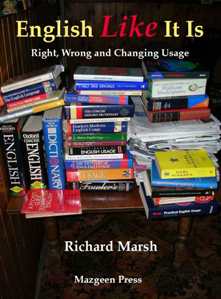This book is written at an intermediate level for non-native students of English. These are the stories, in their own words, of more than 40 young people from 13 countries or regions in Europe who au paired in Ireland. They talk about their problems and successes and how the experience enriched their lives and filled them with self-confidence. A typical response from the au pairs I interviewed was, “I wish I had read a book like this before I became an au pair.”
Reviews
Authentic and useful (5 stars)
November 4, 2012
By Allie Lo
Format:Kindle Edition|Amazon Verified Purchase
“I thought that this was a terrific little ebook about becoming an au pair in Ireland, very reasonable about what to expect from your ‘family’ and what you should be prepared to do. I’m Irish and the descriptions of the families’ and au pairs’ experiences come across as truly authentic.
“Although I’ve neither been nor had an au pair, I have heard ‘stories’ from those who have. If you are thinking of coming to Ireland as an au pair, I feel that you will find this ebook a very useful guide, as it carefully lays out the joys and drawbacks of the role for you to consider, often using the words of au pairs and the mothers who hired them. The sample agreement at the back, the list of English language agencies and the short glossary of words used in the ebook are also very helpful.”
A very well written book (5 stars)
February 14, 2010
by tlp
“This book is quite unique and very well written. it teaches you what an au pair is and how to become an au pair and what to do when problems arise. Many au pairs and hosts were interviewed for this book. It is quite an amazing book and if you ever want to become an au pair or a host of an au pair this book is a must read and I highly recommend it.”
Excerpts
The original au pairs were English girls who stayed with Continental, especially French, families to teach English to the children, while they learned the hosts’ language. It was a mutual arrangement in which services were exchanged on an equal basis. Au pair is French for “on equal terms”.
Now “to au pair” means to work as an equal partner with a mother who has small children and can’t do all the work herself.
***
“How would you tell a friend what it’s like being an au pair in Ireland?” I asked one of my classes preparing for a Cambridge examination.
“It’s better you don’t know,” said Catherine (French, 24). The other au pairs laughed with delight at the way she had expressed their own feelings so exactly. She explained:
“If we tell you about all the problems we’ve had, you might be afraid to try it, and you’ll miss all the good things that can happen. If we tell you about how good it’s been for some of us, you might think it’s always that way, and you won’t be prepared for the problems.”
Catherine summed up her own experience as “golden, a very bright and good time, but too short. Six months is not enough.” And she reflected the opinion of the majority of au pairs in Ireland, in spite of the problems that some of them encountered:
“I went au pairing because it is an easy way to go away when you are not an adventurer, and I found it lovely to live with people you don’t know. Moreover, it’s a good way to learn a language. In Ireland it’s fine, because you are not frightened, because Irish people are friendly and helpful, and at school you meet a lot of friends, which is very important.”
In the end, all the girls agreed that they would have liked to know what to expect before they came to Ireland. But when they told their stories at or near the end of their terms – mainly from two months to a year – the problems seemed unimportant. Most of them didn’t want to leave Ireland, and some stayed to work or study at university.
Would they stay on as au pairs? The answer was almost unanimous: “No.” As Maylis (French, 21) put it: “Everyone should be an au pair once. But once is enough.”

 Amazon UK
Amazon UK


 English Like It Is: Right, Wrong and Changing Usage
English Like It Is: Right, Wrong and Changing Usage Richard Marsh, Bardic Storyteller
Richard Marsh, Bardic Storyteller The Key Bearer Saga, Book One: Earn Fire
The Key Bearer Saga, Book One: Earn Fire The Key Bearer Saga, Book Two: The Shore of Two Worlds
The Key Bearer Saga, Book Two: The Shore of Two Worlds